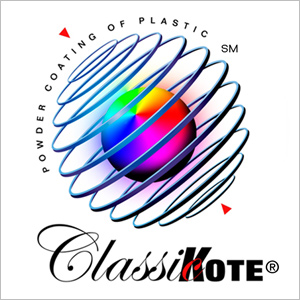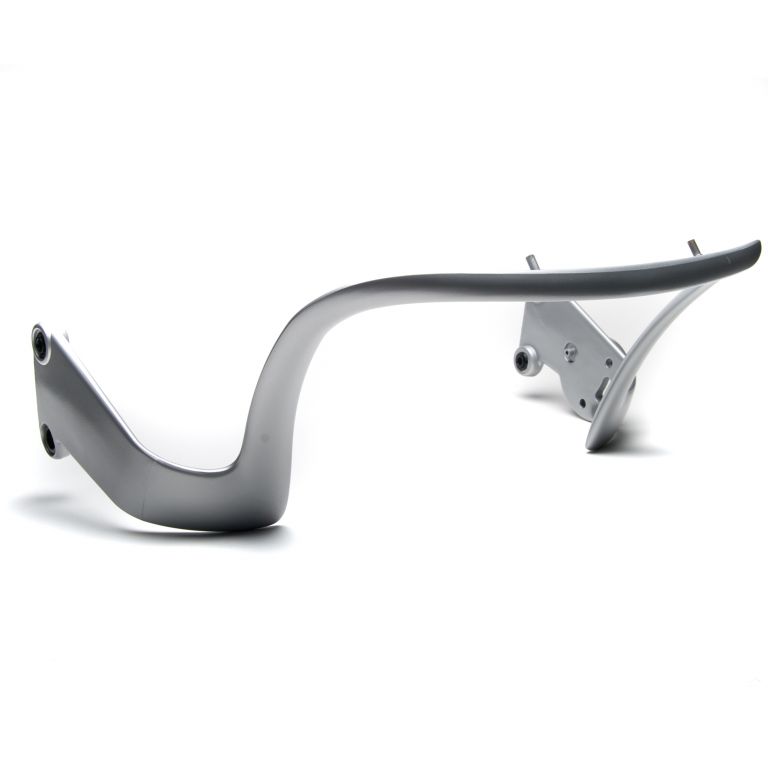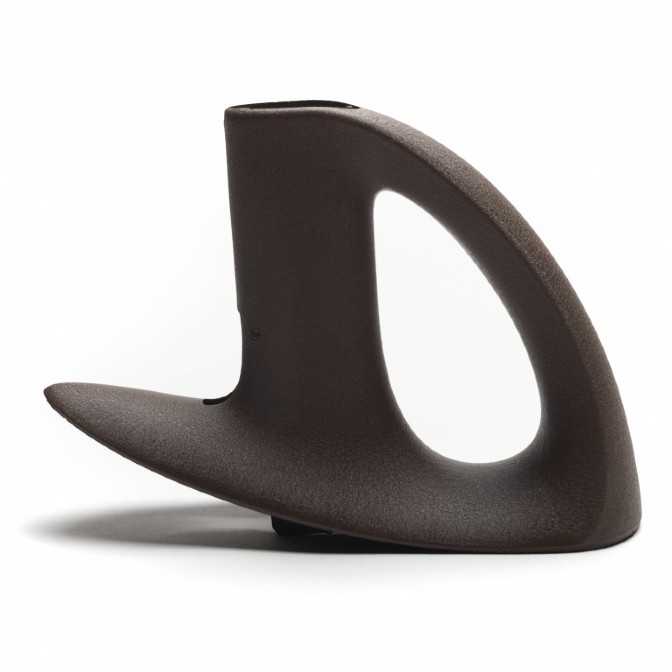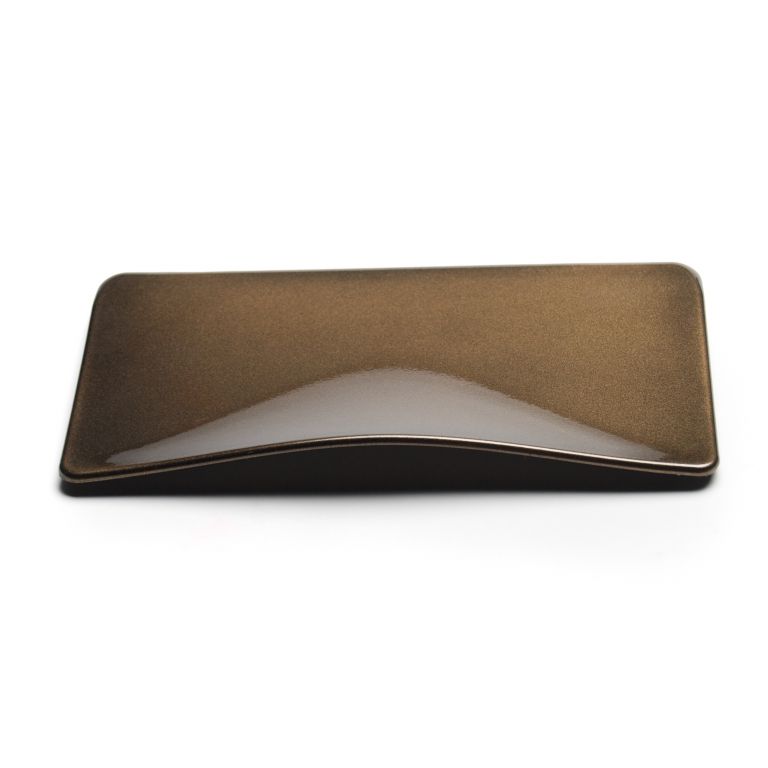ClassicKote - Powder Coating of Plastic
Ask Us A Question Our exclusive ClassicKote process allows us to powder coat glass-reinforced nylon and heat-tolerant plastic parts. It offers all the same benefits that regular powder coating offers, except you may use it for your plastic parts. This is great when you are trying to make a switch from metal to plastic parts because it helps to create product harmony.
Our exclusive ClassicKote process allows us to powder coat glass-reinforced nylon and heat-tolerant plastic parts. It offers all the same benefits that regular powder coating offers, except you may use it for your plastic parts. This is great when you are trying to make a switch from metal to plastic parts because it helps to create product harmony.
You can give engineered, filled, or non-filled materials and non-conductive, nylon-reinforced plastic all the decorative protection only powder coating can provide. In fact, any material that can withstand 385°F temperatures can be powder coated.
ClassicKote Powder Coating, available exclusively from Wright Coating Technologies, gives plastic far more durability, while greatly increasing UV resistance.
ClassicKote comes in a variety of colors, textures, and finishes. Importantly, it is also available in metallic. ClassicKote not only reduces the amount of inventory needed for colored resins but also allows for greater production runs of molded components in one base color.
As the leader in coating technologies, Wright has made it possible for virtually any industry to protect high-temperature plastic parts with color powder coatings and a clear overcoat on them. Among the industries benefiting from ClassicKote are Office Furniture, Appliances, Automotive, Seating, Electronics, Consumer goods, and Custom applications.
Check out some of the products that benefited from our ClassicKote Plastic Powder Coating.
Technical Information
We are an ISO 9001:2015 registered coatings applicator that places a strong emphasis on meeting and exceeding expectations. We can apply our ClassicKote Plastic Part Powder Coating to:
- High-temperature Thermoplastic/Thermosets that support 360° - 400° F Melt Temperature
- Polyamides: Nylons and other Engineering Grade high-temperature Materials
- Nylon 6, Nylon 6/6, with and without glass and mineral additives
- Conductive and Non-Conductive Polyamides
Application Methods
Epoxy (Electrostatic Spray) – Epoxy-based Electrostatic Spray powder coating is used to protect metal substrates such as steel and aluminum from corrosion in a variety of applications.
Epoxy coatings are Thermoset Polymer coatings that come under the category of 'protective coatings' in paints and coating nomenclature. Epoxy-based Electrostatic Spray powder coating is applied through a spray process where the part is electrostatically sprayed with a dry powder that is fluidized with air and then posts cured. Electrostatic Sprayed Epoxy is generally applied at a thickness of 1.5 – 4.5 mils (thousandths of an inch). The name “Epoxy” is due to resin cross-linking and the application method, which is different from conventional paint. The resin and hardener components in the dry powder form do not react in normal storage conditions. Typical coating application temperatures range from 180°C to 250 °C (360°F to 480 °F). Epoxy-based powders are not recommended for exterior applications.
Epoxy (Fluid Bed) – Epoxy-based Fluid Bed powder coating is often used to protect metal substrates like steel and aluminum, in a wide variety of applications, from corrosion.
Epoxy Fluid Bed coatings are Thermoset Polymer coatings. They fall under the category of 'protective coatings' in paints and coating nomenclature. The Fluid Bed process is most often used when a part requires a thicker coating compared to electrostatic spray powder. The Fluid Bed Epoxy coating is applied through a dip process where the part is preheated and dipped into a dry powder that is fluidized with air then post cured. Fluid Bed Epoxy is generally applied at a thickness of 5 – 30 mils (thousandths of an inch). The resin and hardener components in the dry powder form do not react in normal storage conditions. Typical coating application temperatures range from 180°C to 250 °C (360°F to 480 °F). Epoxy-based powders are not recommended for exterior applications.
Polyester (Electrostatic Spray) – Polyester-based Electrostatic Spray powder coating is used to protect a variety of metal substrates, including steel and aluminum, for a variety of applications from corrosion.
Polyester coatings are Thermoset Polymer coatings. They are in the category of 'protective coatings' in paints and coating nomenclature. Polyester electrostatic spray powder coating is applied through a spray process where the part is electrostatically sprayed with a dry powder, fluidized with air, and then post cured. Electrostatic Sprayed Polyester is usually applied at a thickness of 1.5 – 4.5 mils (thousandths of an inch). The name Polyester is due to resin cross-linking and the application method, which is different from conventional paint. The resin and hardener components in the dry powder form do not react in normal storage conditions. Coating application temperatures range from usually between 180°C to 250 °C (360°F to 480 °F). Polyester-based powders are recommended for interior and exterior applications.
Contact the team at Wright Coating Technologies for more information regarding our plastic powder coating services.




